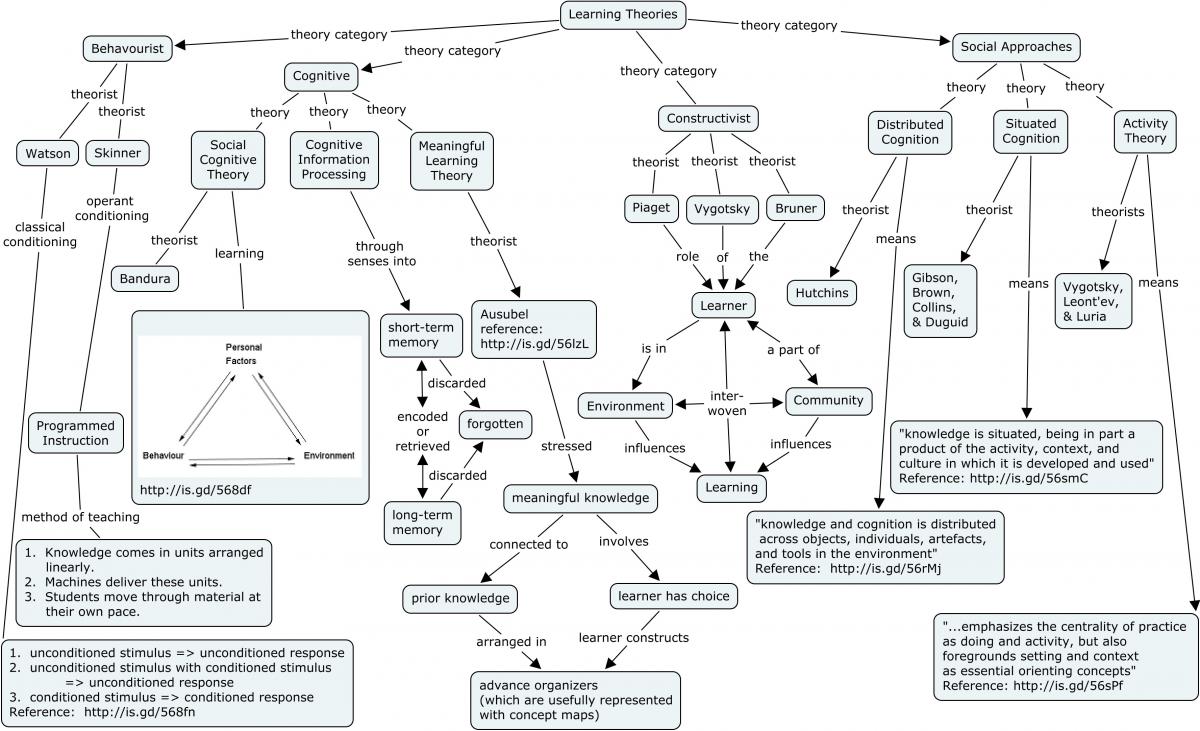I personally think people learn through an unconscious process called experiential learning. They hypothesize about how the world should work, collect data, compare the data they have collected to see if it fits in their theory, and then revise their theory if they feel enough evidence has been found. In this theory, as described by Kolb (1984), people construct an understanding of the world around them using what they know as a basis.
Each piece of knowledge people gain has to be fit into their personal hypothesis. At first, people will "bend" their hypothesis to make facts fit which seem inconsistent, but eventually if enough contradictory data is collected, people are forced to revise their ideas. This is part of the reason why students have so much difficulty learning topics for which they do not have any background; they are constantly required to create and revisit their hypothesis, and to build theories about the information they are receiving "from scratch". "Ideas are not fixed and immutable elements of thought but are formed and re-formed through experience." (Kolb, 1984)
It is crucial during this process that the learner feels comfortable to make mistakes. Although it is possible that an individual learner will have a theory which fits all the facts as they are collected, it is much more likely that conflicts exist between their theory and the data. As the Lewinian experiential model suggests, observations of what one has learned or not learned are a critical aspect of the learning process (Smith 2001).
As drawn from the work of Vygotsky, situated learning suggests that "experience in the activities of the practice" (Kolb, 2005) are integral to the learning process. Without learners being embedded within a community of practice, their ability to make connections, draw conclusions, and verify hypothesis will be greatly hampered.
References:
Kolb, D.A. (1984). Experiential Learning: Experience as The Source of Learning and Development, Case Western Reserve University, retrieved from http://www.learningfromexperience.com/research-library/ on December 2nd, 2009
Kolb, D.A., Boyatzis, K.E., Mainemelis, C. (2000). Experiential Learning Theory: Previous Research and New Directions, Case Western Reserve University, retrieved from http://www.learningfromexperience.com/research-library/ on December 2nd, 2009
Kolb, A.Y, Kolb, D.A, (2005) Learning Styles and Learning Spaces: Enhancing Experiential Learning in Higher Education, Academy of Management Learning & Education, 2005, Vol. 4, No. 2, 193–212.
John-Steiner, V., Mahn, H. (1996). Sociocultural Approaches to Learning and Development: A Vygotskian Framework, Educational Psychologist, 31(3/4), 191-206, retrieved on December 2nd, 2009
Smith, M. K. (2001) ‘Kurt Lewin, groups, experiential learning and action research’, the encyclopedia of informal education, retrieved from http://www.infed.org/thinkers/et-lewin.htm on December 4th, 2009
